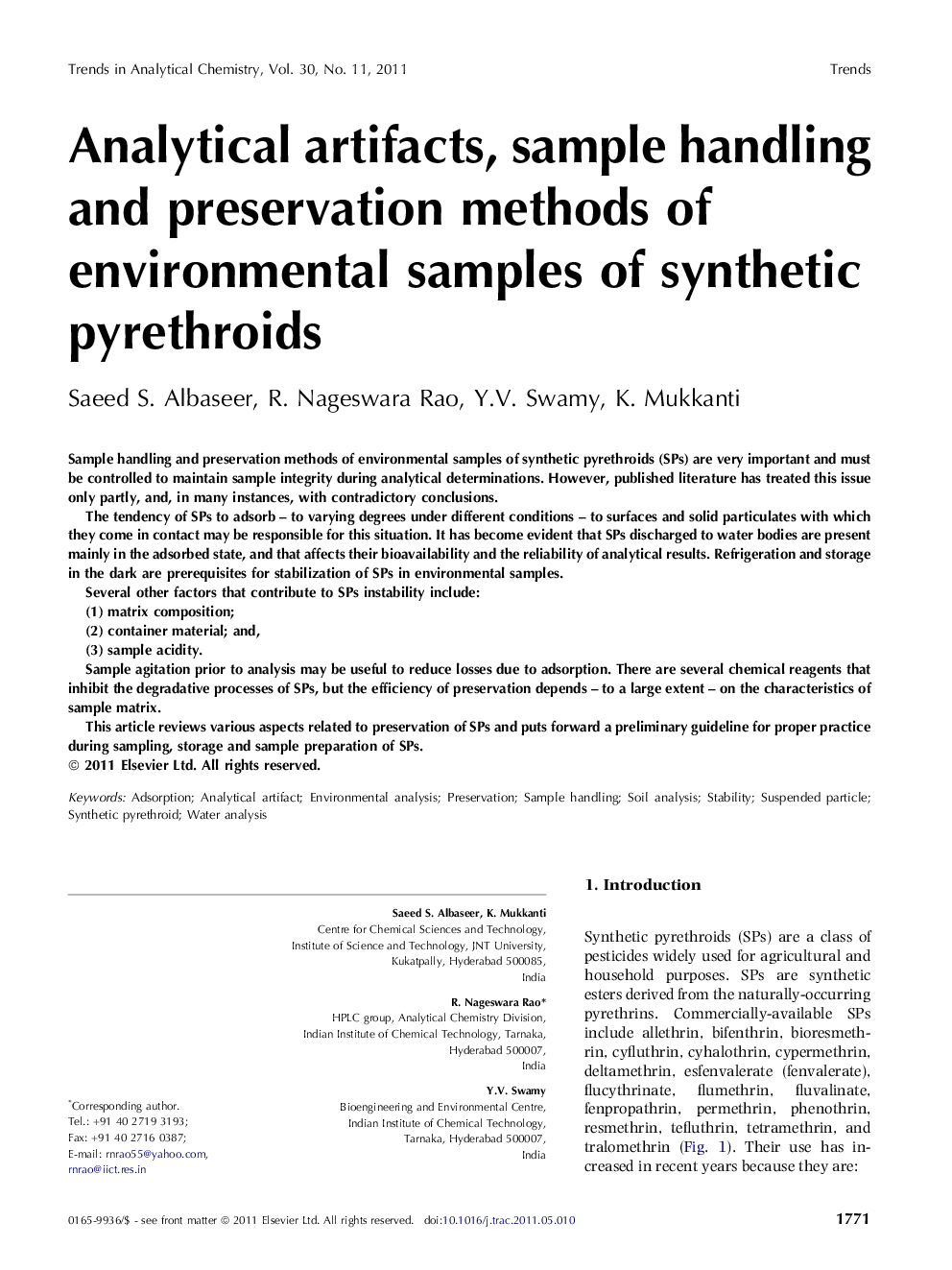| Article ID | Journal | Published Year | Pages | File Type |
|---|---|---|---|---|
| 1248329 | TrAC Trends in Analytical Chemistry | 2011 | 10 Pages |
Sample handling and preservation methods of environmental samples of synthetic pyrethroids (SPs) are very important and must be controlled to maintain sample integrity during analytical determinations. However, published literature has treated this issue only partly, and, in many instances, with contradictory conclusions.The tendency of SPs to adsorb – to varying degrees under different conditions – to surfaces and solid particulates with which they come in contact may be responsible for this situation. It has become evident that SPs discharged to water bodies are present mainly in the adsorbed state, and that affects their bioavailability and the reliability of analytical results. Refrigeration and storage in the dark are prerequisites for stabilization of SPs in environmental samples.Several other factors that contribute to SPs instability include:(1) matrix composition;(2) container material; and,(3) sample acidity.Sample agitation prior to analysis may be useful to reduce losses due to adsorption. There are several chemical reagents that inhibit the degradative processes of SPs, but the efficiency of preservation depends – to a large extent – on the characteristics of sample matrix.This article reviews various aspects related to preservation of SPs and puts forward a preliminary guideline for proper practice during sampling, storage and sample preparation of SPs.
► Aspects related to storage of synthetic pyrethroids (SPs) in water were reviewed. ► Sources of contradiction in literature reports on stability of SPs were identified. ► Adsorption, sample matrix, acidity and hydrophobicity effect SPs stability in water. ► Teflon and plastic-made containers do not suit for storing SPs in water samples. ► Procedures to enhance storage stability of SPs in water were suggested.
